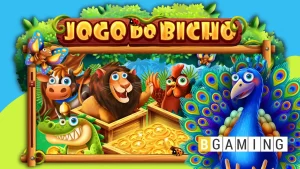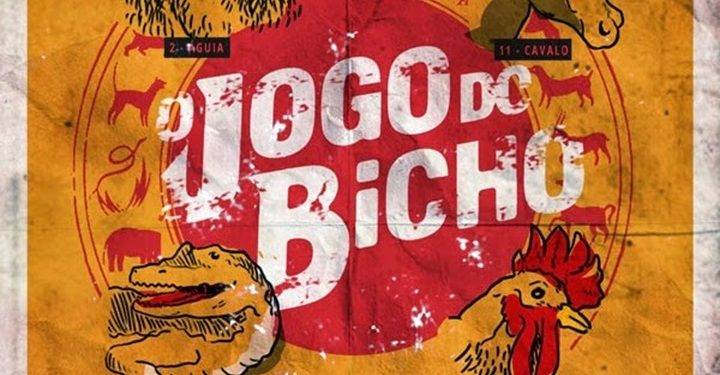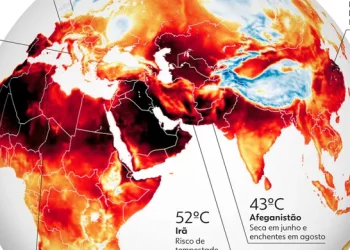In the vibrant city of Juiz de Fora, Brazil, the “Jogo do Bicho” holds a significant cultural and social presence. Originating in the late 19th century, this popular Brazilian lottery game has woven itself into the fabric of daily life for many residents. The anticipation surrounding its results is palpable, as players eagerly await their fortunes. In this comprehensive analysis, we delve deep into the intricacies of the “Jogo do Bicho” in Juiz de Fora, deciphering its results and unraveling the nuances of its impact on the community.
Understanding the Jogo do Bicho

Before delving into the specifics of the results, it’s crucial to grasp the fundamentals of the “Jogo do Bicho.” This unique lottery game operates on a system of animal figures, each corresponding to a set of numbers. Players place their bets on these figures, hoping that luck will be on their side when the results are announced. The game’s allure lies in its simplicity and the promise of substantial rewards for those who correctly predict the outcome.
Historical Significance
The history of the “Jogo do Bicho” is as colorful as the game itself. Originally created by João Batista Viana Drummond, a Brazilian animal lover, in 1892, it was initially intended as a means to fund the Rio de Janeiro Zoo. However, it quickly evolved into a widespread form of gambling, captivating the imagination of the Brazilian populace. Despite facing periods of prohibition and crackdowns by authorities, the game has endured, becoming deeply ingrained in Brazilian culture.
The Mechanics of the Game
At the heart of the “Jogo do Bicho” are the animal figures, each representing a specific set of numbers. These figures range from the majestic lion to the humble cockroach, each carrying its own symbolic significance. Players select a figure and place their bets on a particular number or series of numbers associated with that animal. The results are then determined by a draw, with winning numbers announced publicly for all to see.
Analyzing the Results
Now, let’s turn our attention to the results of the “Jogo do Bicho” in Juiz de Fora. The announcement of these results sparks a flurry of excitement and speculation among players and observers alike. While the outcome is ultimately determined by chance, there are patterns and trends that emerge over time, offering insights into the dynamics of the game.
Key Factors Influencing Results: Several factors can influence the outcome of the “Jogo do Bicho” in Juiz de Fora:
- Popular Figures: Certain animal figures may attract more bets due to cultural or personal significance, affecting the distribution of wagers across different numbers.
- Historical Data: Examining past results can reveal patterns and tendencies that players may use to inform their betting strategies.
- Socioeconomic Factors: Economic conditions and social dynamics within Juiz de Fora can also impact participation levels and betting patterns.
- Promotional Campaigns: Marketing efforts by local establishments and organizers may influence player behavior and betting trends.
Interpreting the Results:
Interpreting the results of the “Jogo do Bicho” requires a nuanced understanding of statistical probabilities and human psychology. While luck undoubtedly plays a significant role, strategic analysis and informed decision-making can enhance one’s chances of success. By studying past results, identifying patterns, and staying attuned to current trends, players can make more informed bets and potentially improve their outcomes.
Impact on the Community:

Beyond its entertainment value, the “Jogo do Bicho” exerts a considerable influence on the community of Juiz de Fora. For many residents, it serves as a source of excitement and camaraderie, bringing people together in shared anticipation. However, concerns have been raised about the social and economic implications of widespread gambling, prompting debates about regulation and responsible gaming practices.
The “Jogo do Bicho” holds a special place in the hearts of many residents of Juiz de Fora, offering a blend of tradition, excitement, and opportunity. While its results are ultimately determined by chance, the game’s impact extends far beyond the realm of luck and fortune. By understanding the mechanics of the game, analyzing results, and fostering a sense of responsible gaming, the community can continue to enjoy the “Jogo do Bicho” while mitigating its potential drawbacks. As the game continues to evolve and adapt to changing times, its enduring appeal serves as a testament to the enduring power of tradition and collective experience.












